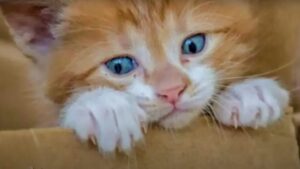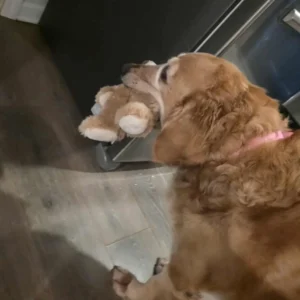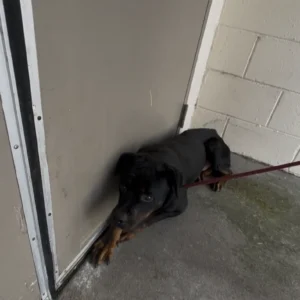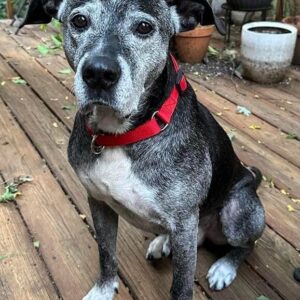It all began at a flea market.
Maya, a 19-year-old college freshman, was browsing dusty stalls for vintage books when she noticed a tiny, dirty box at the corner of a vendor’s table. Inside was a frail kitten — nothing more than skin and bones, with a tangle of matted fur and eyes that barely opened.

“One dollar,” the vendor said, almost casually. Maya hesitated. She didn’t have much, just enough for gas and groceries. But something about the kitten made her stay. A quiet, stubborn voice inside said: Take him.
And so, for a single dollar, Maya bought a life.
She named him Milo, wrapped him in her sweater, and took him to the vet with the last of her week’s money. The diagnosis? Severe malnutrition, anemia, a respiratory infection, and worse — he might not make it through the week.
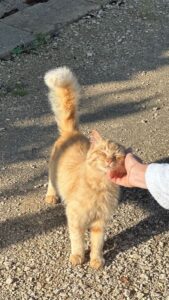
But Maya didn’t give up. She watched YouTube videos on kitten care, syringed tiny drops of food into Milo’s mouth every 2 hours, cleaned his eyes, warmed his blanket with a hairdryer. She lost sleep. Skipped class. Maxed out her emergency savings.
But Milo fought. And within a month, his frail frame filled out. His fur became soft. His eyes turned from dull to bright amber. And every night, he curled into Maya’s neck and purred like a tiny motor.
Milo became more than a pet. He was her quiet support during anxiety attacks, her warmth on lonely nights, the first to greet her when she came home.
But then, two years later, the real cost revealed itself — and it wasn’t money.

Maya was diagnosed with a chronic autoimmune disease. Treatments were long and isolating. Some days, she couldn’t move from bed.
But Milo stayed.
He would sit beside her, pressing his warm little body against her chest. He’d nudge her hand when her mood sank too low. He’d sleep by her side through every hospital night.
Milo cost a dollar. But what he gave in return was immeasurable: love, comfort, and the will to keep going.
People often think rescue animals are the ones who need saving. But sometimes, they’re the ones who save you.
